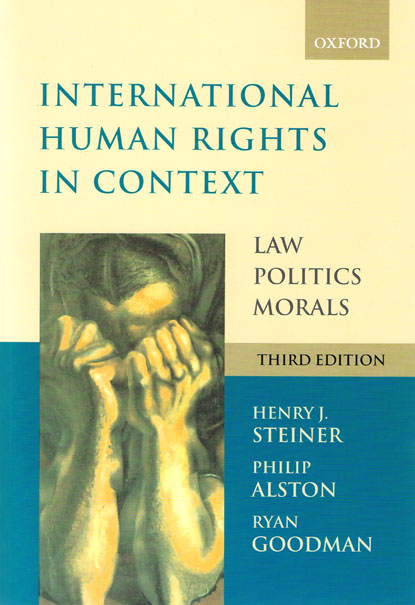
The third edition of International Human Rights in Context continues to bring sophisticated and thought-provoking analysis to the study of human rights within its wider social and cultural context. This widely acclaimed interdisciplinary coursebook presents a diverse range of carefully edited primary and secondary materials alongside extensive text, editorial commentary, and study questions.
Within its conceptual framework, the book thoroughly covers the major topics of international human rights: the basic characteristics of international law; evolution of the human rights movement movement; civil, political, economic and social rights; the humanitarian laws of war; globalization; self-determination; women's rights; universalism and cultural relativisim; intergovernmental and nongovernmental institutions; implementation and enforcement; internal application of human rights norms; and the spread of constitutionalism.
The third edition has been considerably revised and restructured to incoroprate new themes and topics including: human rights in relation to terrorism amd national security; responsibility of nonstate actors for human rights violations; recent substantial changes in sources and processes of international law; achieved and potential reforrm within UN human rights institution; theories about international organizations and their influence on state behavior.
New to this edition:-